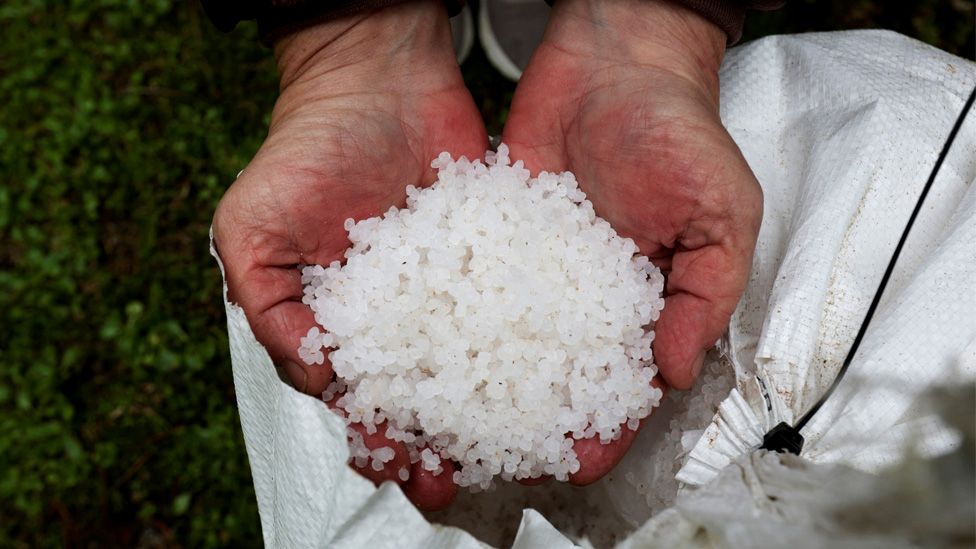-

-
-
Loading

Loading

Coastal communities in northern Spain are concerned about an environmental catastrophe following the washing up of millions of small plastic pellets from a ship. The ship, Toconao, operated by Danish company Maersk, is believed to have lost over 1,000 sacks of pellets, also known as nurdles, on 8 December. Volunteers have been working tirelessly to clean up the spill in the north-west Galicia region. The alarm has also been raised on the Asturias coast, further east. It is believed that up to six containers fell from the Liberian-flagged Toconao, around 80km west of Viana do Castelo in northern Portugal. One of these containers contained at least 26,000kg of pellets, while the others held items such as clingfilm, tyres, and tomato sauce. Coastal communities have witnessed a "white tide" of pellets gradually washing ashore since 13 December. Noia, a port town in Galicia, has been the worst affected, and fishermen in Vigo have been on the lookout for floating sacks of pellets in the Atlantic Ocean. However, rough seas have made this task challenging. Public prosecutors have initiated an investigation, and concerns have been raised that the spill may spread further east towards the Basque country. The cleanup process is proving to be incredibly difficult due to the small size of the pellets and their widespread distribution. People have been sifting through sand and water in an attempt to collect the plastic. The regional government in Galicia has accused Spain's national government, led by the Socialists, of failing to notify local authorities promptly and not activating a marine pollution plan. However, the national government insists that it kept coastal authorities informed. This incident has reminded local communities of Spain's worst-ever environmental disaster in 2002, when the oil tanker Prestige broke up off the Galician coast, spilling more than 60,000 tonnes of heavy fuel oil. Although authorities claim that the non-toxic pellets, made of PET plastic, will not harm wildlife or the environment, the magnitude of pollution is still a cause for concern and could impact the fishing industry. The Ecologists in Action group has announced its intention to file a complaint against the Danish shipping company. The nurdles can be ingested by animals, creating further plastic pollution within the food chain, including for human consumption. As PET is non-biodegradable, any pellets left in the environment will remain there for centuries. Approximately 300 million tons of nurdles are produced annually, with an estimated 230,000 tonnes ending up in the oceans. In 2017, a ship moored in Durban, South Africa, spilled an estimated 2.25 billion nurdles, while three years later, 10 tonnes of pellets fell into the sea off the coast of Germany due to storm damage to a container on the MV Trans Carrier. Nurdles from the South African spill have even reached as far as Western Australia, which is 8,000km away.